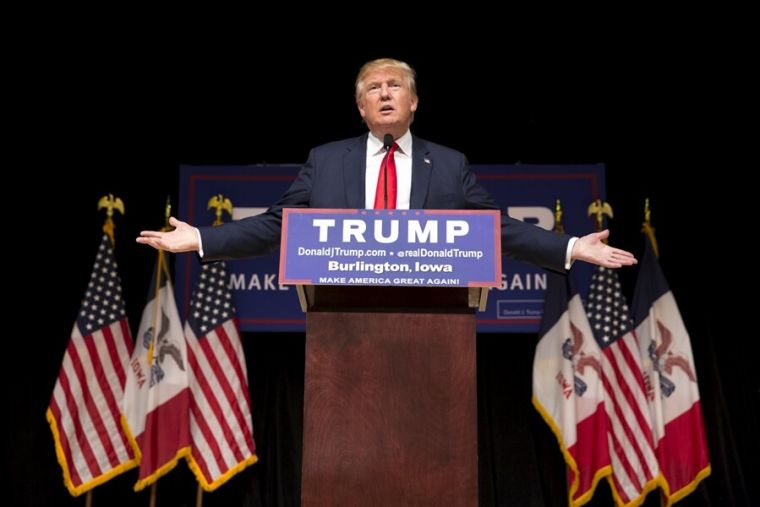Donald Trump may shut down US mosques as part of anti-ISIS plan if elected president

Republican presidential front-runner Donald Trump said he is open to the idea of closing down some suspicious mosques in the United States if he is elected president, pointing out that this is part of his planned campaign against the Islamic State jihadist group.
In a telephone interview with Fox Business Network host Jim Varney, Trump was asked how far he will go to combat the threat of Islamist militants entering American soil.
"Can you close a mosque? I mean, we do have religious freedom," Varney asked the Republican presidential aspirant, as quoted by New York Daily News.
To this, the controversial business tycoon replied, "Well, I don't know. It depends on if the mosque is, you know, loaded for bear, I don't know. You're going to have to certainly look at it."
Trump also said he would likewise consider revoking the passports of American citizens who left the US and traveled abroad to fight for the ISIS, also as part of the effort to prevent the Islamist group from penetrating the nation.
"I would do that. Absolutely. I think it's great," Trump said when asked by Varney on the likelihood of American passports being cancelled for those who are suspected of supporting the ISIS.
"If you go out, you go fight for ISIS, you can't come back. Why can't you do it? You can do it here," the business mogul, who has been leading Republican presidential preference surveys, added.
As can be expected, Trump's remarks drew sharp criticism from some groups.
Linda Sarsour, executive director of the Arab-American Association of New York, described Trump's plans to prevent ISIS presence in the US as "dangerous."
"That the Republican front-runner for president is calling for the closing down of religious institutions in the land of religious freedom is outrageous," Sarsour told The News.
"This rhetoric, if it's allowed to continue, has real consequences for the Muslim community in the US," she added.
Ibrahim Hooper, a spokesman for the Washington-based advocacy group Council on American-Islamic Relations, meanwhile considered Trump's recent remarks as an indication of Islamophobia.
"I hope this finally prompts people to speak out against this off-the-rails Islamophobia that we are seeing from the right wing of the American political sector," Hooper said.











